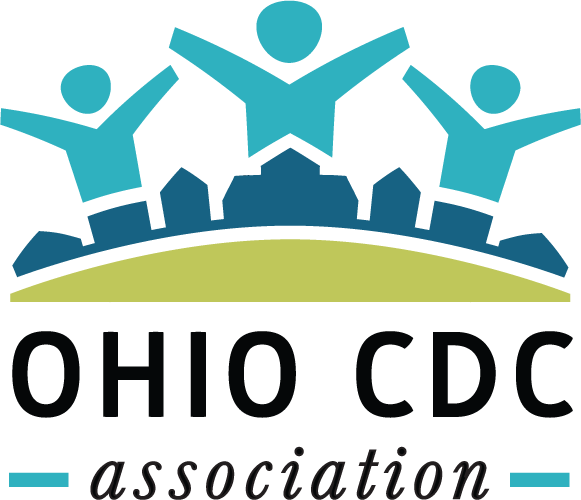This was originally published in the September 29, 2021 Newsletter.
State News
Revised Financial Literacy Bill Clears House Panel
A measure that would require Ohio high school students to receive financial literacy instruction advanced in the House on Tuesday after it saw a raft of changes.
The bill passed the Senate in May 32 – 0. The House Primary & Secondary Education Committee reported the measure after adopting a substitute version of the legislation (SB 1) and two amendments. Chair Rep. Gayle Manning (R-N. Ridgeville) said the substitute bill:
Makes changes to the Ohio Literacy Fund recommended by the state treasurer's office.
Requires students who enter ninth grade on or after July 1, 2022 to complete one-half unit of financial literacy as an elective or in place of one-half unit of math. That math course cannot be algebra II or another class with a required end-of-course exam.
Requires instruction to be aligned with academic content standards for the subject.
Mandates that an advisory committee tasked with consulting with the State Board of Education Track on the standards to include four or more classroom teachers and one financial literacy instruction expert.
Exempts educators with valid social studies, business education and family and consumer science licenses or endorsement from new financial literacy license validation requirements.
Adds educational service centers to the list of entities that can receive reimbursements for license validation costs.
Federal News
Build Back Better Act in Flux
The Build Back Better Act is a transformational plan to invest in America’s people and communities that includes affordable housing and community development ($300 Billion+), permanently extending the child tax credit, establishing universal pre-K, federally paid family and medical leave, climate change mitigation and renewable energy, among other initiatives. This would be paid for by tax increases on large corporations and the wealthy (2017 witnessed substantial tax reductions). The Build Back Better Act is unfortunately referred to by the oft-cited (without context) amount of $3.5 Trillion in spending. It’s important to note that political attacks and media coverage rarely cite the important nuances of corresponding revenue raised and that the amount is over a whole decade and only represents 1.2% of the American economy over this time period.
House Speaker Nancy Pelosi has planned an infrastructure vote (bi-partisan $1 Trillion for traditional infrastructure) on September 30 as the safety net bill (budget reconciliation bill aka $3.5 Trillion package) that includes community development and housing investments remains mired. The move appears to decouple the two packages after the Democratic consensus strategy to move them concurrently. This is also occurring as the necessity to increase the debt ceiling is being used as a destructive wedge to stall much-needed investments in America’s people and communities. Needless to say the situation is changing constantly.
From NLIHC: The House Budget Committee voted September 25th to advance the “Build Back Better Act,” a $3.5 trillion comprehensive infrastructure and economic recovery package, to the House Rules Committee in preparation for a full vote on the House floor. The full vote in the House could take place as soon as the coming week. While the vote was procedural and did not allow members to make any substantive changes to the bill text, the Rules Committee may make sweeping changes to the bill, including major cuts in funding. Any reduction to the “Build Back Better Act” could result in harmful cuts to the $327 billion proposed for affordable housing currently in the bill and put at risk the HoUSed campaign’s top priorities: $90 billion for rental assistance, $80 billion to preserve public housing, and $37 billion in the national Housing Trust Fund to build and preserve homes affordable to people with the lowest incomes.
From NACEDA: The updated bill out of the House Budget Committee includes:
$34.77 billion for the HOME Investment Partnerships Program;
$5.7 billion for the Community Restoration and Revitalization Fund in competitive grants;
$4.26 billion in competitive grants under the Unlocking Possibilities Program to eliminate exclusionary zoning and land use policies;
$6.6 billion for the Community Development Block Grant program.
The Neighborhood Homes Investment Act is also progressing through the budget reconciliation process. The bill would create a new federal tax credit to support the construction and rehabilitation of single-family, owner-occupied homes in distressed communities. Learn more.
OCC Issues NPR to Rescind 2020 CRA Rulemaking
From Enterprise: On September 8, the Office of the Comptroller of the Currency (OCC) issued an official notice of proposed rulemaking (NPR) to rescind its June 2020 Community Reinvestment Act (CRA) rulemaking and replace it with rules largely based on the 1995 CRA rules, as revised. This NPR follows the OCC’s announcement in July to rescind its May 2020 final rule, which it issued independently in an unprecedented break from the other governing agencies, the Federal Deposit Insurance Corporation and the Board of Governors of the Federal Reserve System. The CRA, which aims to help low- and moderate-income communities gain access to financial services, loans, and community development investments, was first enacted into law in 1977 and has only been amended twice since – in 1995 and 2005.
The OCC’s NPR notes that replacing the OCC’s 2020 CRA rule with regulations based on rules that were previously adopted jointly by the three banking regulators would facilitate the ongoing interagency work to modernize the CRA regulatory framework and promote consistency for all financial institutions subject to CRA examination. Last month, the U.S. banking regulators issued a joint statement, committing to working together on developing a joint rule that would strengthen and modernize the CRA. The OCC is accepting public comments on its NPR through Friday, October 29.
